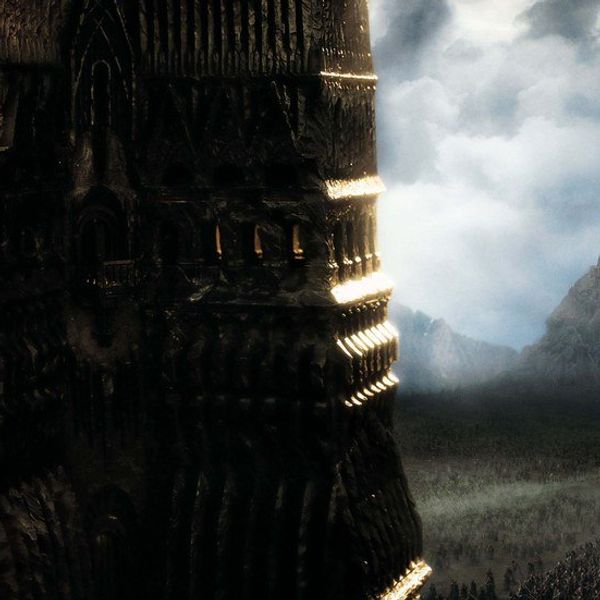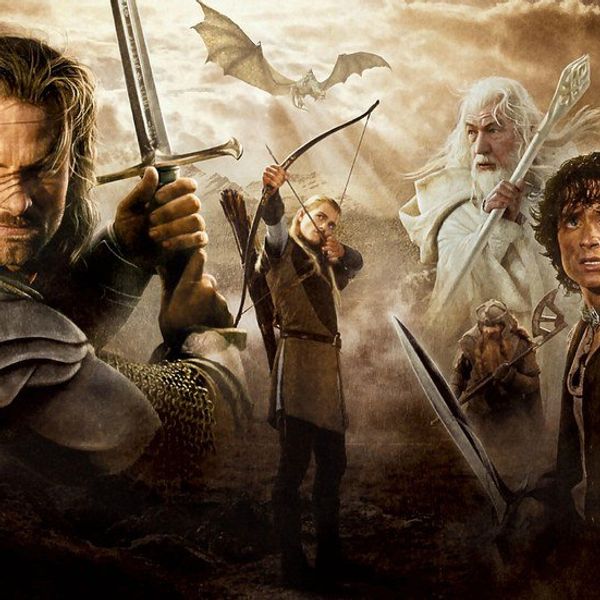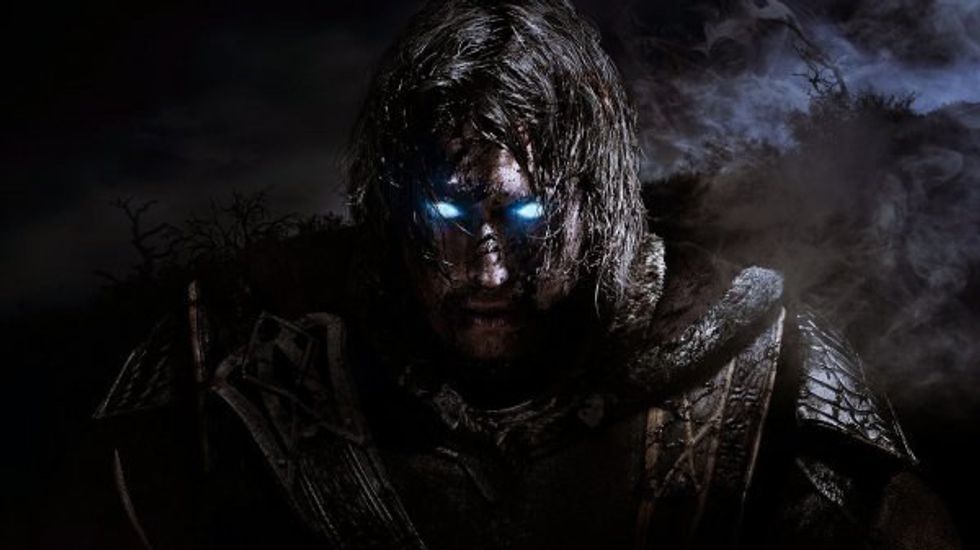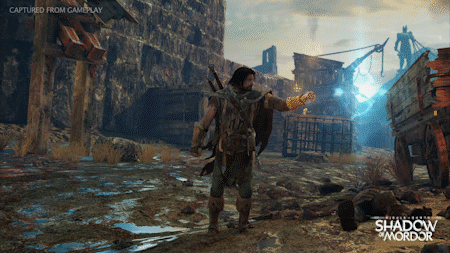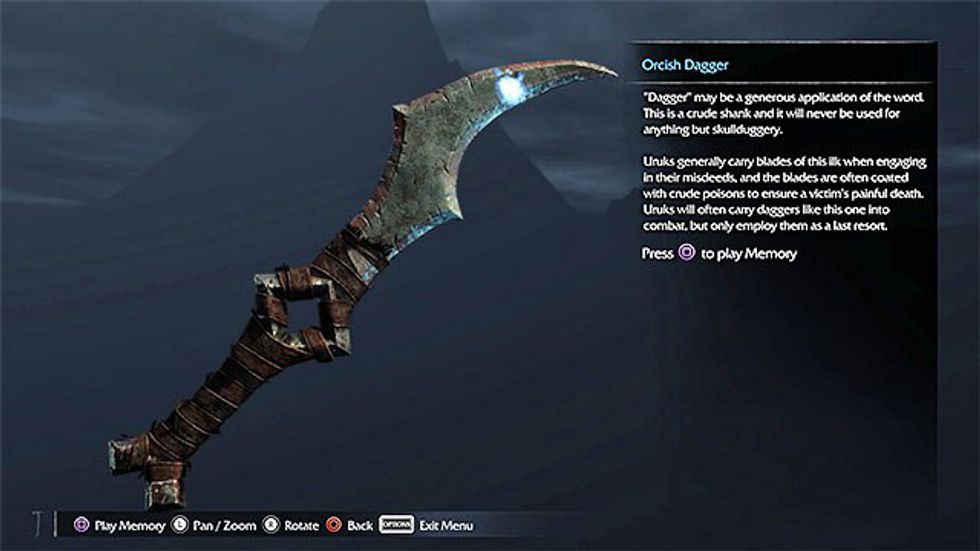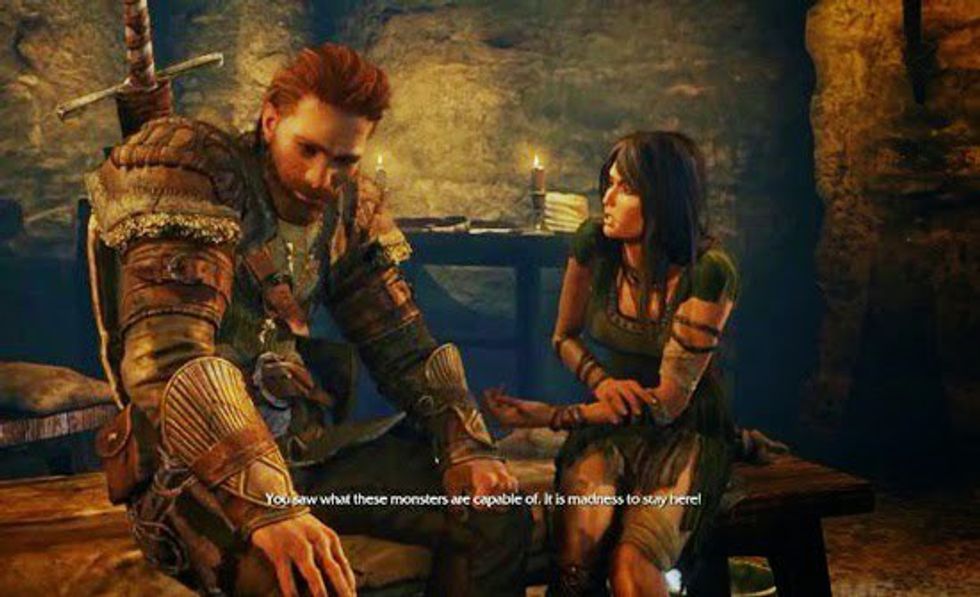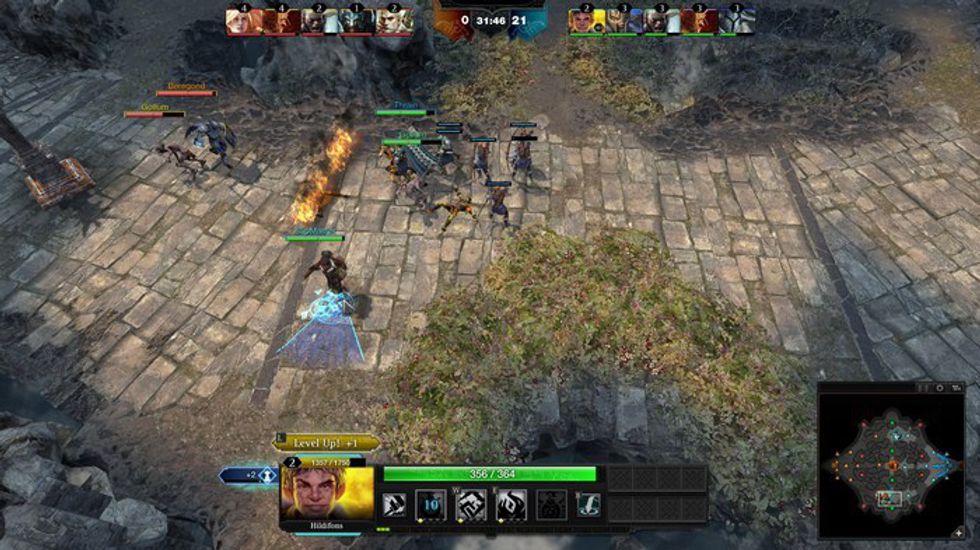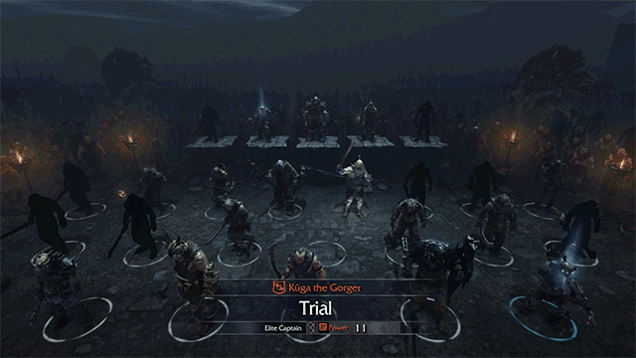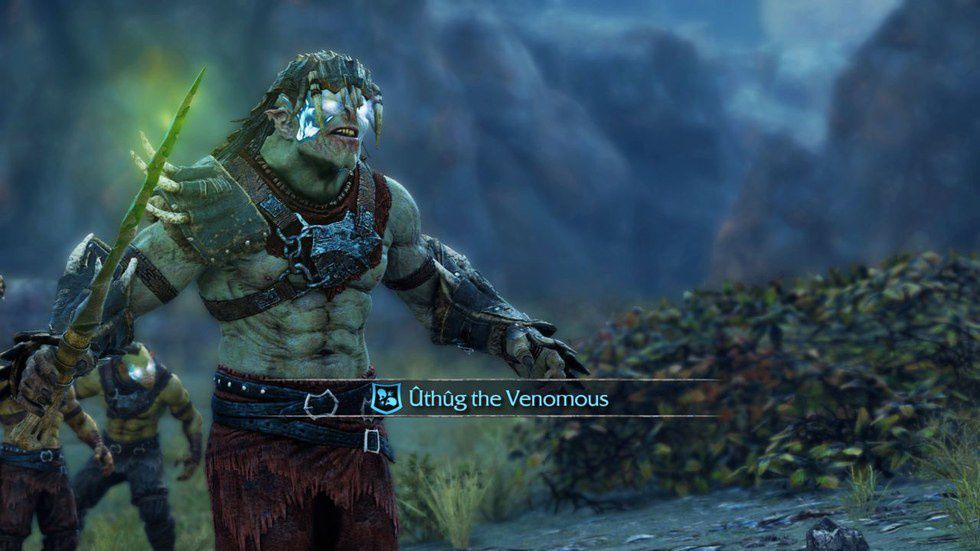Shadow of Mordor is one of the few Middle Earth games that pushes beyond the intensity of violence--making the gore vivid and personal. The executions you can perform on Uruks, the smarter and stronger Orcs, in mid combat with surrounding enemies or in a one-one-on skirmish with a captain or was chief are unlike fights in any other LOTR games I have ever played. You even gain the abilities of a wraith--something no other "Lord of the Rings" game has ever done before. But does this excuse the artistic license Monolith took with the game's story?
You play Tailon, the former Black Gate captain turned ranger of Gondor--how foreboding--a character not part of Tolkien's Legendarium who witnesses the execution of his entire family and becomes possessed by Celebrimbor, a wraith--an important and real character of the Tolkien universe. He was in fact the elf who Sauron--you know the giant eye in Lord of the Rings?--tricked into helping him forge most of the rings that plagued Middle Earth in the first place. And now you look for the evil agent of darkness, the black hand, to avenge your family and help stop the Dark Lord.
But considering these events happen before the Fellowship of the Ring, we know something is up. We know that Talion doesn't succeed. Then again, it's the journey, not the destination, right? Well, not for Tolkienists.
While the game offers a large collection of 45 "artifacts" found in the Second Age of Middle Earth, each of them adheres to the game's story only through the original mythos. The game loses points for that, yet the interesting part of finding these artifacts is the inspection feature that allows you to find a memory point on the object--triggering memories in dialogue with the characters who have interacted with it. When finished, Either Talion or Celebrimbor, or both, react to your findings with a one-liner.
After finding the artifact, Ranger's Reading Primer, a sweet and clever memory of a ranger proposing to his lover while teaching her how to read plays. We meet both of these characters later in the game, drastically changed by on-going war and the return of Sauron. And yet even more amazing is in further analysis, the name the lover pronounces, Fëanor, is the grandfather of Celebrimbor.
The story redeems itself with these subtleties because it's how they make their plots interesting, no matter how far they stray from Middle Earth's history--but thankfully not too far.
But more importantly, the gameplay is outstandingly exclusive to both its open world hack-and-slash genre and its backdrop. While Monolith is known for its history of horror and carnage with the F.E.A.R. series, they had tackled a Lord of the Rings title in 2012, which produced the flop, Guardians of Middle Earth. The poor attempt at an MOBA--Multiplayer Online Battle Arena--was made with little to no effort to cater to any Tolkien Lore-goers. But Shadow of Mordor is a leap above the rest because of its inclusion of the little things we Tolkien fans can appreciate.
What is authentic and heartfelt from Monolith is the dedication to the Uruk's presentation and behavior. Employing a hierarchy system to the Uruk's chain of command, Monolith has given its players the ability to, directly and indirectly, affect their ranks. Your kills or deaths can either promote a run-of-the-mill soldier to captain or prevent a captain from becoming a Warchief which is the highest position among small armies.
Any high ranking Uruk has a distinct yet familiar to the LOTR series set of armor and features--such as a gaping maw, a certain strength or weakness, a murky dark green or oily gray skin color. And each of them is given an epithet after the defining trait they possess. When faced in battle, they are introduced with a line of dialogue that also pertains to their traits.
Warchiefs, the hardest to kill and the most dangerous type of Uruk to face, command small bands of armies and require conditions to gain an audience with. But when they arrive, other Uruk soldiers chant their name with frightening zeal. But that isn't the best part of the game's Uruks, their introductions are.
But after dozens of executions, the most terrifying and psychologically damaging of them all, are the quiet captain, lieutenants, or Warchiefs who have no actual line of dialogue at all, but instead a horrifying laugh or muffled breathing followed by a clacking of sharp mangling yellowish teeth.
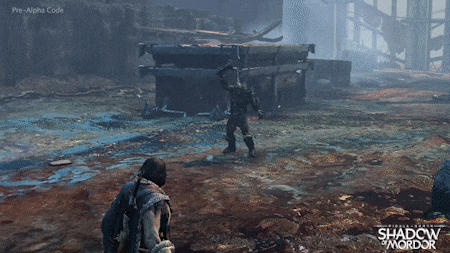
Scouring the game's forums for relatable encounters, I came across the name of an Uruk captain who plagues rangers alike. Prak Jaws. With a name like that, he did not disappoint. He was tough and deadly, forcing me to have a go at him three times before I could kill him, my deaths each time making him stronger.
The point is, yes, Shadow of Mordor is not the game most devoted to the Tolkien universe, but in its own right, they've made their story compelling with interesting extensions to the lore and with fun and repayable gameplay. And for that, I can forgive Shadow of Mordor.

